19 Feb 2025
10 things about our new website
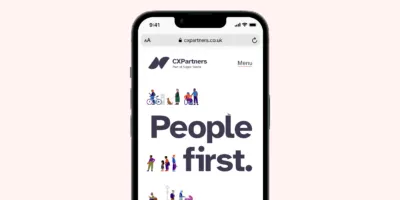
A run down of our ten favourite changes to our new website.
-
Stuart Tayler
Practice Director

1) We have a new visual identity: a new logo, a new typeface specifically designed for readability, a new colour palette, illustration style (courtesy of the brilliant Ryan Todd), and photography style (courtesy of the equally brilliant Nick Hand). It’s more simple, and more usable.

2) We’re clearer about what we do: Better service, visions and organisations.
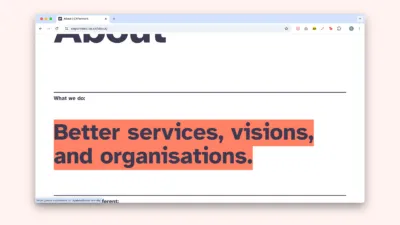
3) Clients wanted to know what makes us different. So we’re clearer about that too. Scroll down our home page to see.
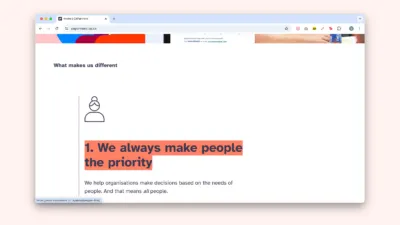
4) We speak in plain English. We’ve tried hard to avoid jargon and weasel words. But if you spot any – let us know!
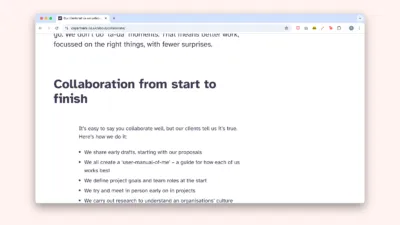
5) We’ve created a new format for our case studies. Go to our Work to see.
- We wanted to give clients more “snack-able” content. So now include a short summary and we’ve imposed tough word limits!
- We focus on what we did for clients and the outcomes, rather than getting bogged down in the process.
- We use examples to make abstract concepts more concrete. For example, we show our conversation design in our NHS case study.
- We share key insights from our work.

6) We show more of our team. Clients and staff wanted to know who they would be working with, and what it would be like. So we show people’s faces in lots of places, like our blog listings. And our people page shows the whole team.
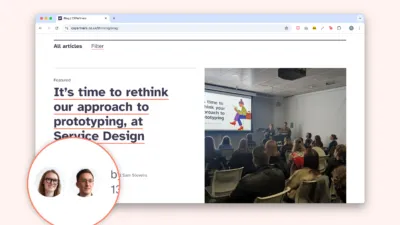
7) We show people where we’re heading with “our ambition for the future”. We tell you about our values, goals, what we’re doing to achieve them.
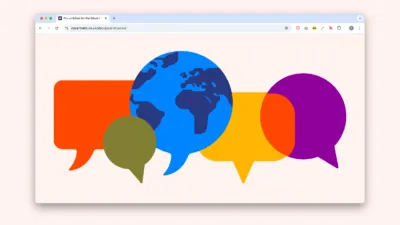
8) We have a new Thinking section, for our thought leadership. It includes blogs, white papers, and “Insights”. (Fun fact: each Insight has its own colour theme, based on the colour of the houses in Hotwells, Bristol).
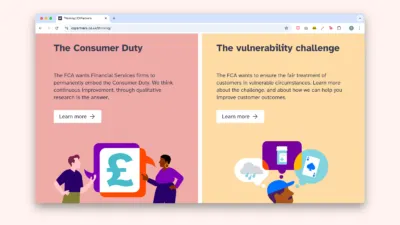
9) We have a new events section. We host a lot of events, including our annual Customer Centricity month. These didn’t have a home before, but now you can check out our upcoming and past events.
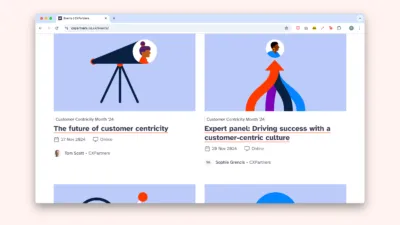
10) We’ve introduced blog collections. This is a way for us to bring together blogs on a particular theme, like Customer Centricity, Inclusive Design or Consumer Duty.
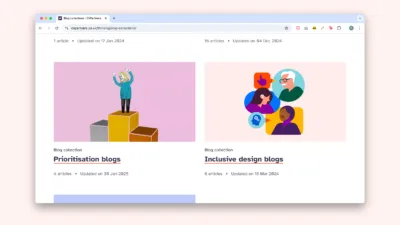
Finally, one smaller change is that our contact form is more inclusive. We don’t ask for separate first and last names, and we then use a bit of code to understand how people want to be addressed in emails.



